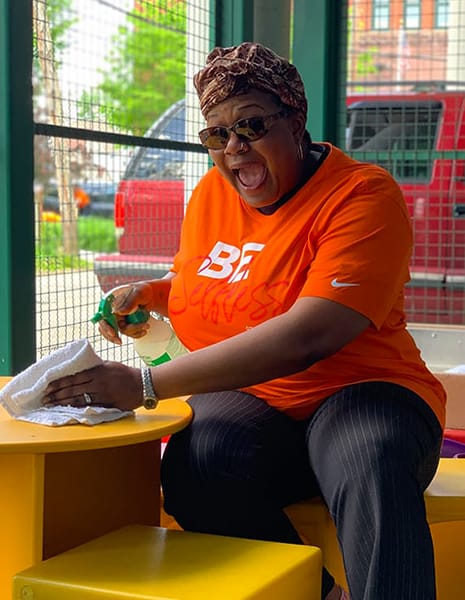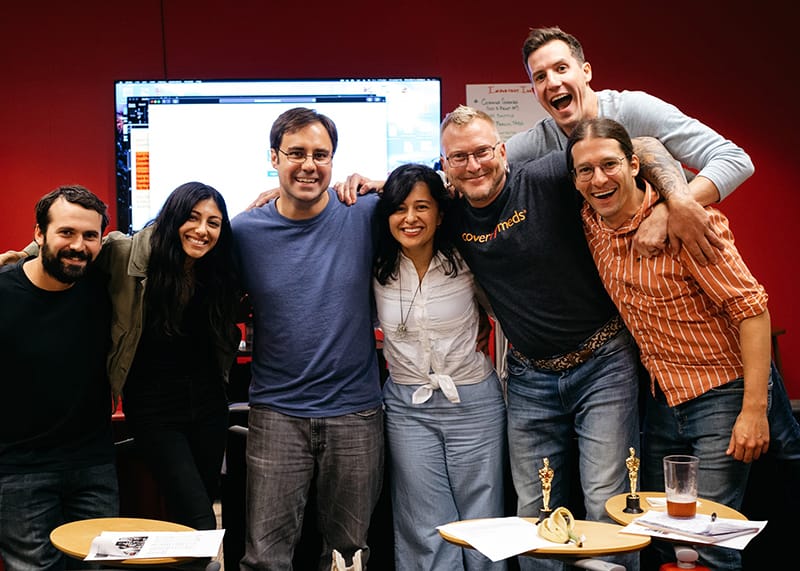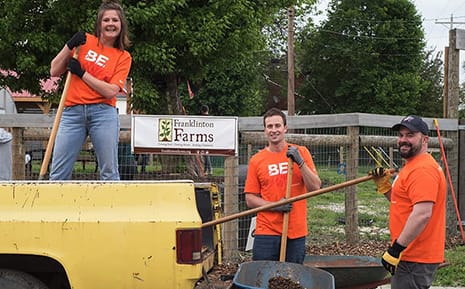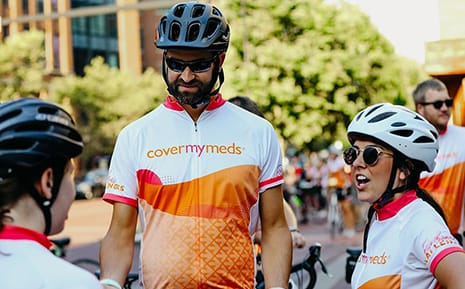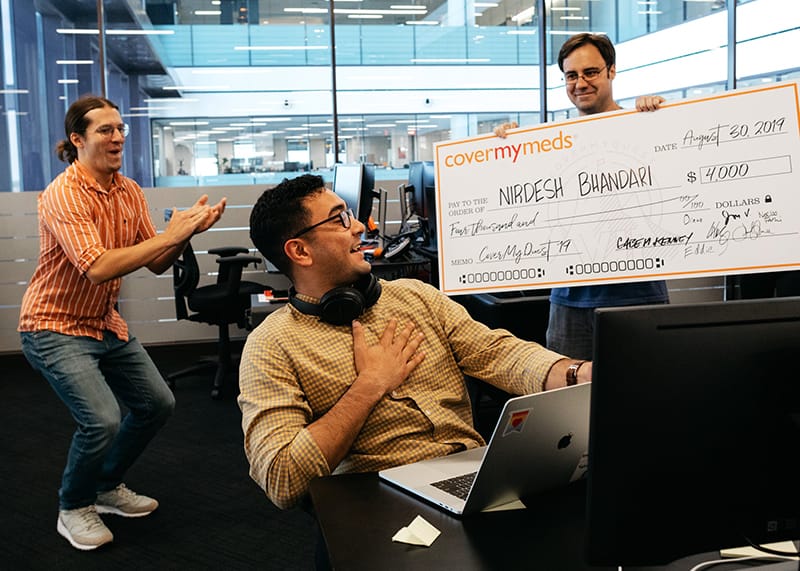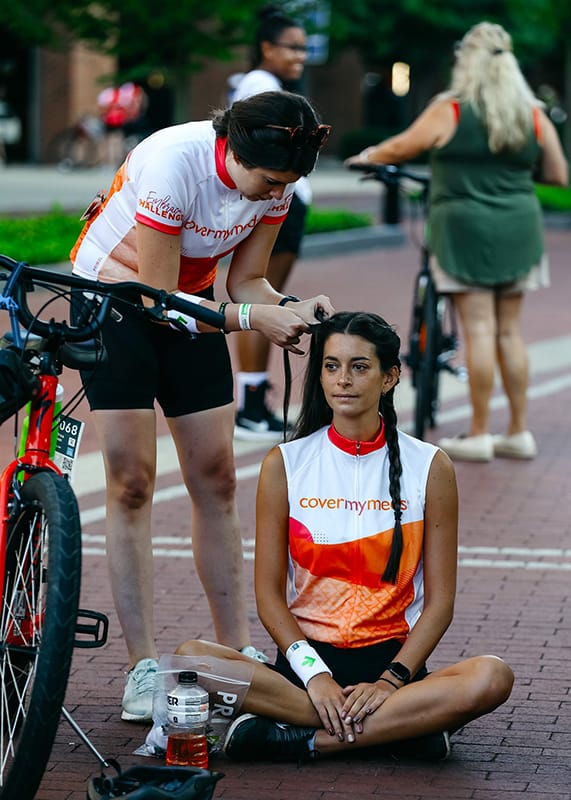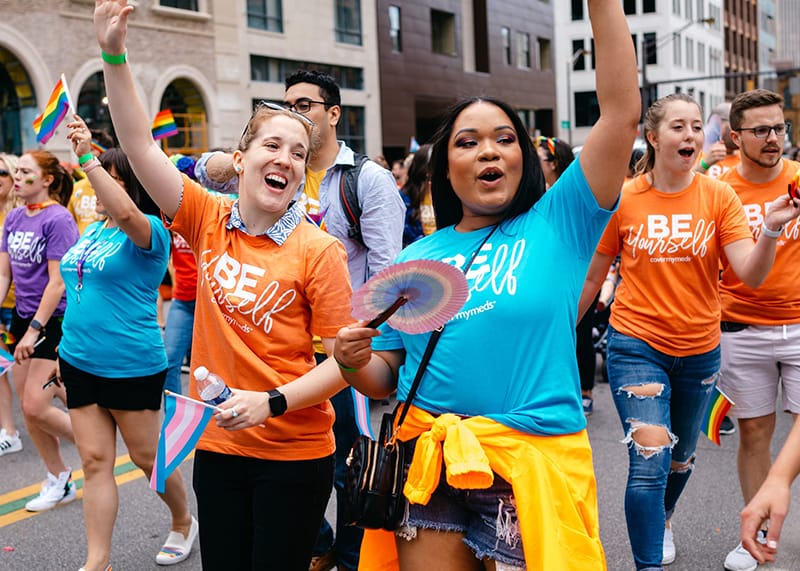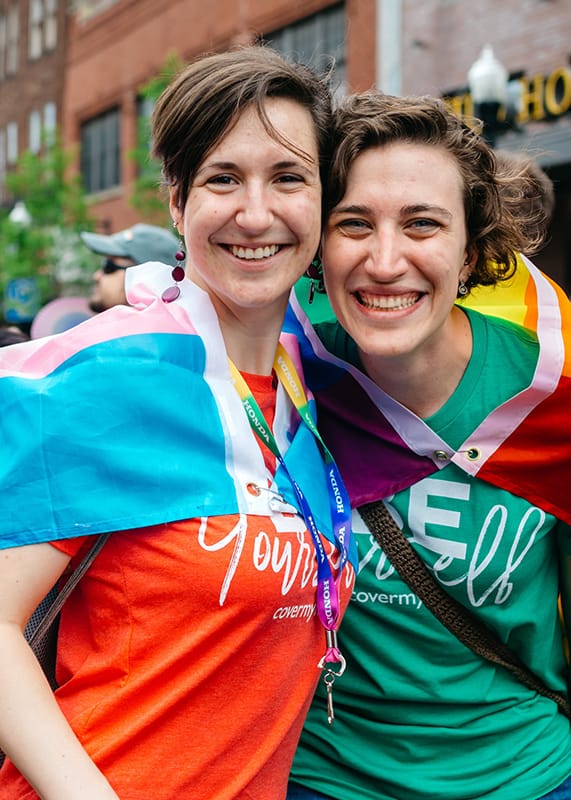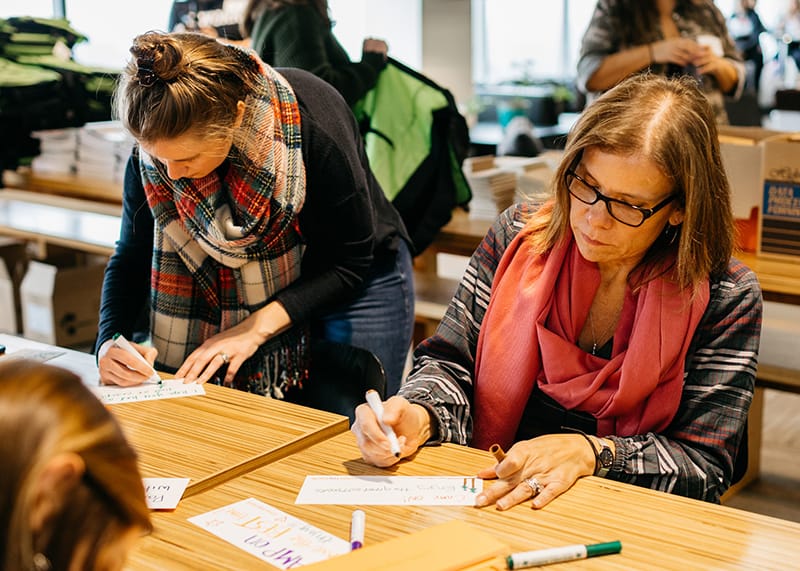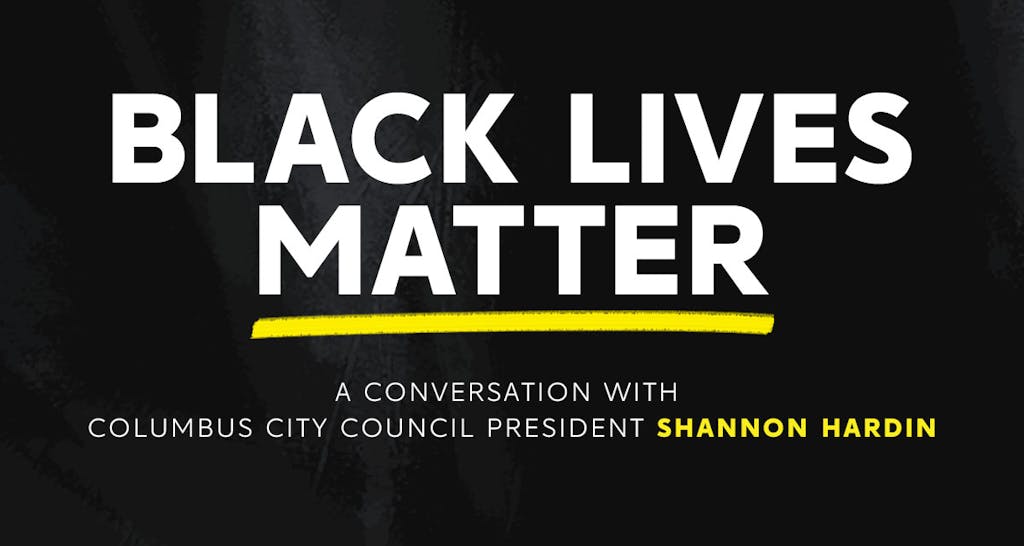
Making Space for Tough Conversations
As events of the last few weeks weigh on our society and consciousness, we remain hopeful about the power of what we can achieve if we are willing to stand up for justice and support one another. As a company, we are committed to have the kinds of conversations we know are necessary to truly affect change and end systemic racism.
This month, CoverMyMeds’ President David Holladay — along with more than 750 Columbus business leaders and thousands of individuals — signed a letter of support for a resolution declaring racism to be a public health crisis. The resolution, put forth by Columbus City Council member Priscilla Tyson, calls attention to the fact that minorities are impacted more greatly by inequities in many areas, including crime, social capital, education, transportation, employment, food access, housing, public safety and access to healthcare.
Last week, we invited Columbus City Council President Shannon Hardin for a lunchtime conversation about racism in our community, and the actions we should take as a company and as individuals to be part of the solution to break the cycle of systemic racism.
CoverMyMeds employees had dozens of questions for Council President Hardin. Here, we share a selection of his responses.
CoverMyMeds (CMM): How should we be thinking about what’s happening in our Black communities as we continue to witness injustice?
Council President Shannon Hardin (SH): We’re in such a seminal moment in our nation’s history — and certainly in our city’s history. (As Americans) we haven’t really done the work of reconciliation, dealing with 400 years of racism and the impact that has had on all of us. And it’s not just folks of color; I’m thinking of the LGBTQ+ community, too.
We don’t like to sit in the heaviness of our history very often. Within the last week, a conversation bubbled up around Christopher Columbus even — should we take down his statue? That question may make some folks scared: “If you take that down, what’s next?”
But, (the city of) Columbus is great because we are great. The name, “Columbus” is a living thing. If we are just, fair and equitable, and if we are striving for equality, then we make our name great.
I see this moment in time as akin to the late 1960s, when our grandparents and some of our parents went through the turmoil, yet moved the ball forward for us. Of course, they left some unfinished business, but now we can finish that work. It is uncomfortable, but we will give this the dignity that the moment deserves. Our job is to use this moment to throw the ball as far as we can. We might not get all the way there, but if we throw it out far enough — if we see the vision, create the conversation, create the opportunity —we will be markedly better.
I think about Columbus through the eyes of my nephew, Christian. He’s six years old. He’s my “why,” he’s the whole reason I’m in public service right now. Columbus has to see him as an asset and not a liability. I’m not going to stop working until I know this community is worthy of Christian — and not just my Christian, but all the young people in this community who know this city has something to offer but it’s just out of their reach. I am more committed to this work than I have been to anything in my life.
CMM: Something that has come up here within our community is the declaration of racism as a public health crisis — both by the city of Columbus and Franklin County. What exactly does that mean?
SH: The county went first in making that declaration, but the truth is, there were two years’ worth of work before the declaration of racism as a public health crisis.
The county started a blueprint of poverty; they brought together business leaders and nonprofit leaders, as well as individuals from the community, for half-day conversations that really drilled down and exposed that the heart of poverty is racism. (They found that) this is what all of these (challenges) come back to: racism. And so they created an anti-poverty agenda that focused specifically on racism, and the county put $25 million behind it.
Similarly, this year the mayor and the city acknowledged and declared that racism is a public health threat and that we were going to put forward an equity agenda and view all of our policies through equity — not equality, but equity. It’s about really bringing all of our residents into the full beauty of what Columbus is and what it has to offer.
A lot of things are nebulous in terms of the legislation that we pass, but words matter. You can’t address something if you don’t state it first. It was an important step for us to take, and the truth is, we’re calling on the State General Assembly to do the same thing as well.
Dealing with COVID-19 focused us in on just why this is a health crisis — it’s just one more example of what we’re talking about. If we’re really going to move forward, we have to be open to having this conversation about racism everywhere it lies.
CMM: What is the role of the public in this work?
SH: Hold us accountable. I don’t want the peaceful marches to stop, I don’t want the calls to stop. I have been fundamentally changed — it’s not that I ever felt these things didn’t need to happen, but the political reality and the space to say and do it wasn’t there. I’m throwing that out the window. I believe this is our moment. I won’t get another chance like this even if I serve in public office for the next 15 years. I know that this is a special moment to move the ball, and we’re going to go for the fences.
I’m going to do what I believe is right, and that’s going to be my barometer. Watch me, don’t listen to me, because I can show you better than I can tell you. Watch our work and hold us accountable.
CMM: What is our first step in moving forward to completely eliminate systemic racism once and for all?
SH: Right before COVID-19 arrived in Columbus, I was in Dresden, Germany, our sister city, to commemorate the 75th anniversary of the bombings of Dresden, which took place in the last nine days of WWII.
I didn’t understand (the challenges) until I went over there for this event, which included folks whose parents were Nazis, Americans, Germans. For days, we had a very uncomfortable conversation about the uncomfortableness of our history. It was so powerful — and weird for me as an American, because we just don’t do that. But I believe this is how you really move forward in changing hearts and minds.
This is not a Black issue; this is an American issue. It’s also not you specifically owning the racism, it’s owning the truth of how our history has impacted parts of our community. Until we have those moments of introspection, we cannot move forward.
In that moment, I realized we are all connected in this. If you want prolonged change, you’re going to be a part of this, and you can’t take yourself away from it. I understand even more than I had before my role in this; I am the City Council president, and that means something, and while I have this opportunity, I better do something with it.
CMM: What’s the stance of the City Council regarding the demands to defund the police and possible reinstating those funds into the community?
SH: The truth is, we’ve been asking way too much of police officers. We’ve been asking them to solve our poverty issues, solve our homelessness issues — and it has not worked. We do need to have a conversation about allocation — and we have been doing this — as it pertains to things like opioids. On any opioid call now, a police officer alone cannot go out. A police officer paired with a health worker trained on opioids go out together on that call. And, in some instances, it’s the healthcare worker and a firefighter that go out on that call.
We need to invest in more of that type of work. We need to create a social services group that can do that (kind of work) for mental health, homelessness … and take away the hard-edge police enforcement from those interactions. That will mean that they won’t have the same amount of money, because that money needs to go to other places.
Policing should look and should feel different. That is the work we have in front of us, and it’s not going to be easy. But that’s the challenge, the charge I have: to fundamentally have a different type of policing in our city.
CMM: What do you think is the responsibility of a company like ours? How can we be allies to our community?
SH: CoverMyMeds has a huge platform and footprint. Companies with progressive folks need to make sure their voices are heard. And invest with minority-owned businesses and make sure the C-Suite has people of color.
Then, the harder work is figuring out how you can make the soul of your company be better. The only way to answer that is to talk with your people, and people of color specifically.
Thank you to Council President Hardin for joining CoverMyMeds — and for participating in a robust, challenging conversation that has inspired our staff to continue the fight to end systemic racism in our communities.
